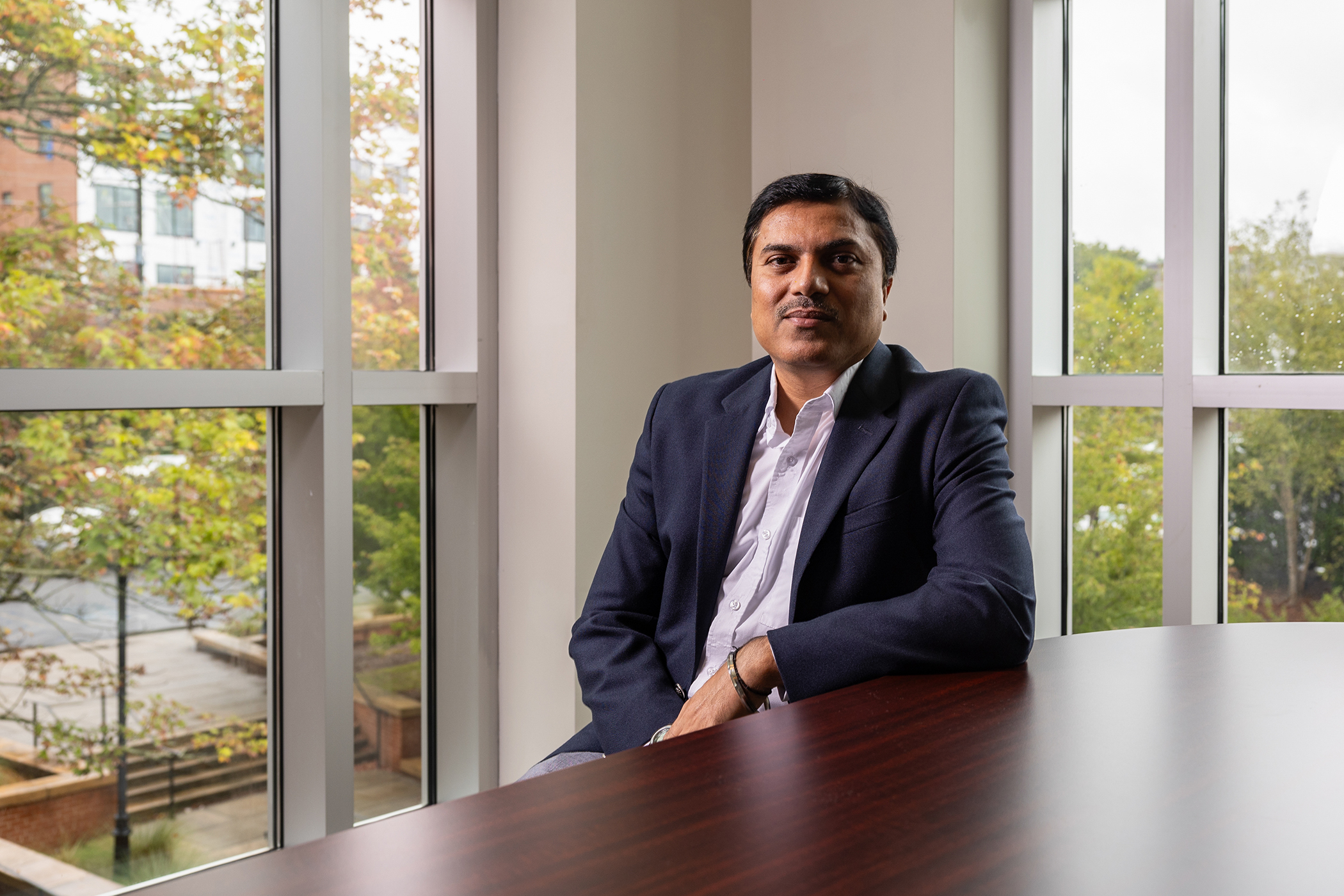Most social work students can’t say they unraveled a sleeping bag and mosquito net at night to complete their required internships.
Gaurav Sinha can, and he spent more than his fair share of his internship in some of India’s coldest December nights and 110-degree summer evenings.
The School of Social Work assistant professor and researcher thought he would become a human resources professional in his native country. But as he traveled across the country, he couldn’t help but notice the extreme social and economic disparities between regions and individuals.
He pursued an M.S.W., and it was during those nights with rural families that he knew social work was his calling.
“When you see with your own eyes, then you feel the disparity,” Sinha said. “When I began my master’s program, the notion was what can I do for them. By the time I graduated, it was what can I do with them. My belief was, and still is, that we can work together and find solutions to longstanding social problems affecting a large number of marginalized populations.”
Sinha has now spent 20 years in social work. His passion for working with people and his research interests all have roots in those formative years as a graduate student with a bedroll, and he hopes to use those experiences for the betterment of others.
“Once you live that life, your outlook towards life changes,” Sinha said. “Why am I here? I am not working for students, but I am trying to work with them, trying to achieve something together to have a better society.”
Today, Sinha is researching generative artificial intelligence (AI) models that can respond to anxiety prompts. Alongside researchers from other universities, he is building a framework based on ethics and responsibilities to create models that respond from the viewpoint of a peer instead of a therapist.
“We are putting processes in place where human beings can evaluate a response for things like authenticity, harmful content and toxic content,” Sinha said. “We are looking at these issues to see why these machines are generating these certain types of responses and make our models better.”
Sinha’s current research comes off the heels of successful paper publications and recent projects. He recently completed a study that examines the link between mental health and student loan debt on social media, a project that analyzed over 30,000 pages of data. More than 20 news stories cited his findings across the country.
As much inspiration as Sinha draws from his research interests of poverty, social justice and mental health, more comes from his time in the classroom. At the University of Georgia, he is instructing sections on “Power, Oppression, Social Justice and Evidence-informed Practice, Advocacy and Diversity in Social Work” and “Evaluation of Professional Practice.”
“My students are the driving force behind what I do,” Sinha said. “I enjoy interacting with the students. This is the community where I thrive. There is a kind of motivation—I feel the classroom is a living community, and it brings the best out of me.”
When Sinha isn’t researching or teaching, he enjoys spending time with his family or listening to favorite artists John Denver, Dolly Parton and Yanni. The avid media consumer enjoys watching movies and historical dramas “in any language,” and he leans into the curiosity that social workers possess, taking various items apart and putting them back together to see how things work.
Those questions into how things work have refined his research in machine learning and modeling. In the future, he plans to research and develop a technology that can provide financial literacy and coaching for individuals with mental health issues.


